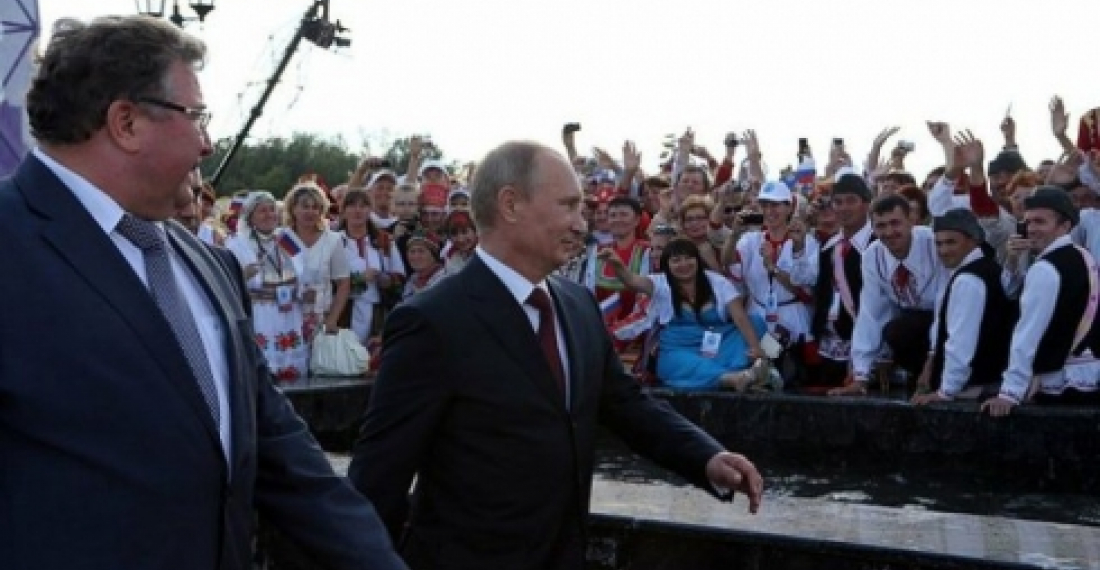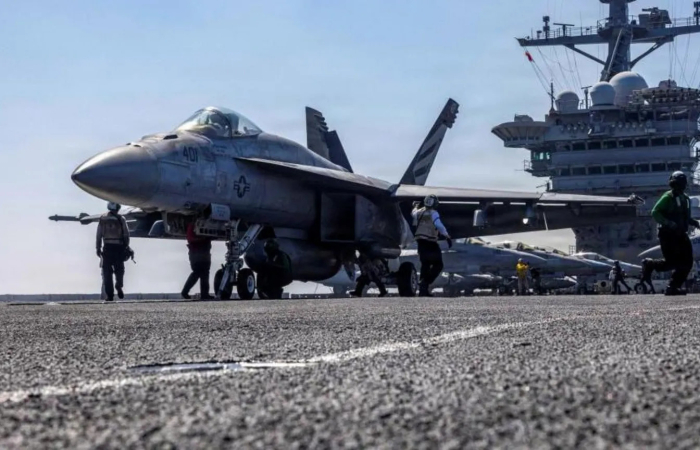The Russian President, Vladimir Putin has warned against the dangers of nationalist extremism to the future of the Russian Federation. He was speaking at the launch of the of the Presidential Council for Interethnic Relations which was held in the city of Saransk in the Mordovian region of the Russian Federation, on Friday.
The Council includes representatives from all of Russia’s ethnic and cultural associations, scientific and expert communities, and heads of federal government agencies. Before the meeting, the President took part in celebrations marking the 1000th anniversary of the unity of the Mordovian people with the peoples of the Russian state.
Putin reminded his audience that "According to the 2010 national census results, there are 193 peoples and ethnic groups in Russia today speaking 171 languages. Of these languages, 89 are taught in the state school system. I think I can confidently say that no European country offers such a level of protection of citizens’ ethno-cultural rights." He said that
"This Council must become a forum where we can discuss frankly the current issues in interethnic relations, without having to smooth over the thornier edges. We need to draw people representing all of the various public and political forces into these discussions, not reject anyone, and study and analyse the competing proposals, except for blatantly extremist proposals.
All reasonable and substantive ideas should be incorporated into the work to develop modern policy approaches that will help us to achieve and strengthen interethnic harmony and peace. I hope that the non-governmental organisations and national-cultural autonomous regions that you head will be active partners and show interest in working together with the state institutions."
Putin said that the Council's main strategic directions should be to:
- strengthen Russia as a unique world civilisation. Neither religion nor ethnicity must divide Russia’s peoples and citizens.
- strengthen Russia's multi-ethnic people’s sense of civic unity;
- harmonise interethnic relations and preventing interethnic conflicts.
In his wide ranging speech Putin warned of the dangers that Nationalist separatism can create to the Russian Federation:
"Let me stress that we do not have the right to ignore any negative tendencies that occur in this sphere, and we must understand that conflicts may not only weaken the state, but also destroy its very foundations. Today, more and more often, under the guise of developing democracy and freedom, various nationalist groups are raising their heads. They participate in rallies, work on the Internet and among teenagers and students, using slogans of “Russian,” “Tatar,” “Caucasus,” or other “regional” nationalism. In essence, they are all pushing and provoking separatist tendencies inside our nation. It is important to suppress this dangerous influence. And together, we must make tolerance, respect toward the culture and way of life of other individuals, other peoples, other ethnicities one of the key notions in our society."
Putin also spoke about the new wave of migrants into Russia.
"The next challenge is to ensure the successful integration and adaptation of foreign and domestic migrants. Migration plays a significant role in many nations around the world. Russia is no exception. We are already in second place after the United States in terms of the number of migrants coming here, and like other nations, we have encountered problems with interethnic tension. That is why, to make use of the positive potential the migration has – and that potential is great, - we must modernise the entire system of migration management.
It is very important to create adequate conditions for integrating migrants, defending their rights and freedoms and assuring their social protection. At the same time, the migrants must also abide by Russian laws and migration rules, respect our traditions, culture, and rules of behaviour of the regions they are coming to. Only this kind of mutual respect can give us harmony, rather than create close ethnic groups."
source: commonspace.eu with Kremlin.ru
photo: President Putin arriving for a ceremony marking the 1000th anniversary of the unity of the Mordovian people with the peoples of the Russian state. (Picture courtesy of the press Service of the president of Russia.)







